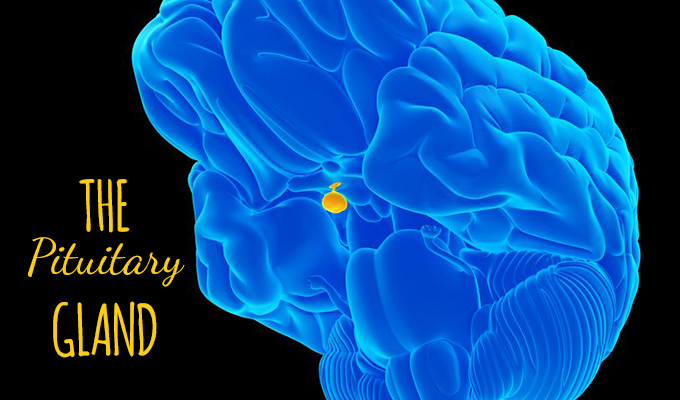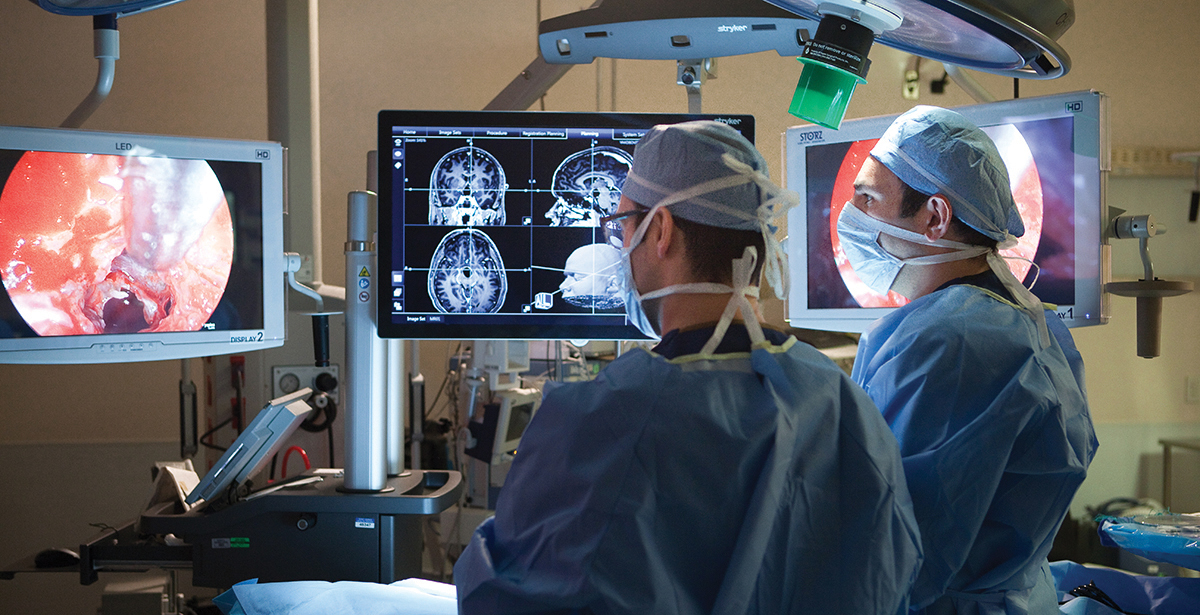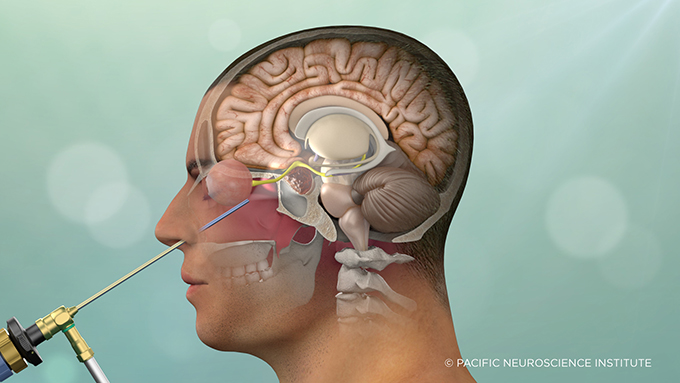

9 Everyday Questions about Pituitary Tumors and Pituitary Adenomas
by Zara Jethani
Pituitary disorders due to tumors are an under-diagnosed set of conditions that can wreak havoc on the hormonal system of the body resulting in a multitude of seemingly unrelated symptoms including weight gain, fatigue, loss of menstrual cycle and impotence.
Pituitary adenomas comprise various types of almost all benign tumors affecting the pituitary gland in the brain. They are by far the most common type of tumor occurring in the brain and account for about 15 percent of all first-occurrence (primary) brain tumors. Examples of pituitary adenomas include acromegaly, Cushing’s disease and prolactinoma.
Garni Barkhoudarian, MD, FAANS, expert neurosurgeon and co-director of Pacific Pituitary Disorders Center at Pacific Neuroscience Institute sat down to answer some commonly asked questions about pituitary adenomas.
What are common symptoms for pituitary adenomas?

When there is a tumor on the pituitary gland, symptoms may vary depending on the particular diagnosis. The most common symptoms are headaches, vision loss or double vision, and hormone dysfunction which can include fatigue, weight gain, loss of menstrual cycle and impotence. In some cases, pituitary tumors can be truly asymptomatic.
Is a brain tumor, pituitary lesion and a pituitary tumor the same thing?

A pituitary tumor is considered a type of brain tumor. Pituitary lesions may also include cysts and inflammatory conditions that may mimic tumors.
What pituitary tumor treatment do you recommend?

One specific type of pituitary tumor, a prolactinoma (pituitary adenoma that secretes the hormone prolactin), can be very successfully treated with medications (cabergoline or other dopamine agonist).
In all other patients who have symptomatic pituitary adenomas or have a growing tumor, especially in patients with Cushing’s disease or acromegaly, or other pituitary conditions such as central hyperthyroidism, craniopharyngioma and chordoma, surgical resection is best.
We recommend an endoscopic endonasal surgical removal of the tumor by an experienced team, ideally consisting of both a neurosurgeon and ENT surgeon.
I’m worried about my pituitary tumor diagnosis. Is pituitary tumor surgery dangerous?
There are always risks with any surgery. Though not very common, there are certainly serious complications that can occur during or after pituitary tumor surgery. These range from sinus infection, bleeding and hormone dysfunction to meningitis, vision loss, stroke and even death. Thankfully, the risks of these major complications are low (1-3%).
How long does pituitary tumor surgery take?

The duration of pituitary tumor surgery varies based on the tumor type, specific location, invasiveness and goals of surgery. The typical operation is around 3 hours, but can be upwards of 8-10 hours for rare tumors.
How common are pituitary tumors?

Pituitary tumors and cysts are very common, being identified in about one in six people. However, those that need surgery are much less common, affecting approximately 1/10,000 people annually.
How fast do pituitary tumors grow?
Most pituitary tumors are slow growing, approximately 1-3mm/year.
How often do pituitary tumors grow back?
This depends on the tumor type and pathological features. Most pituitary tumors have a recurrence rate of about 10% over 10 years. Craniopharyngiomas, chordomas and Cushing’s disease tend to have faster recurrence rates.
Are there pituitary disorders resources?
Yes, some resources for education and community support include:
- Pituitary Network Association
- pituitarysociety.org/patient-education
- cushings-help.com
- hormones411.org
If you or a loved one has been diagnosed with a pituitary adenoma, please schedule a consultation at 310-582-7450.
About Dr. Garni Barkhoudarian

Garni Barkhoudarian, MD, FAANS, is a board-certified, fellowship-trained neurosurgeon with a focus on skull base and minimally invasive endoscopic surgery. Dr. Barkhoudarian has particular interest and expertise in pituitary and parasellar tumors, brain tumors, skull-base tumors (including meningiomas, craniopharyngiomas, chordomas and schwannomas), intra-ventricular brain tumors, colloid cysts, trigeminal neuralgia, hemifacial spasm and other vascular compression syndromes.
Clinic Locations
PNI-SANTA MONICA (map)
PROVIDENCE SAINT JOHN’S HEALTH CENTER
2125 Arizona Ave, Santa Monica, CA 90404
310-829-8319
PNI-SOUTH BAY (map)
PROVIDENCE LITTLE COMPANY OF MARY TORRANCE
5215 Torrance Blvd #300, Torrance, CA 90503
424-212-5361
PNI-BURBANK (map)
PROVIDENCE SAINT JOSEPH MEDICAL CENTER
501 South Buena Vista St, Burbank, CA 91505
818-847-6049 | Fax: 818-847-4842
Useful links
About the Author

Zara Jethani
Zara is the marketing director at Pacific Neuroscience Institute. Her background is in molecular genetics research and healthcare marketing. In addition, she is a graphic designer with more than 20 years experience in the healthcare, education and entertainment industries.
Last updated: May 26th, 2024